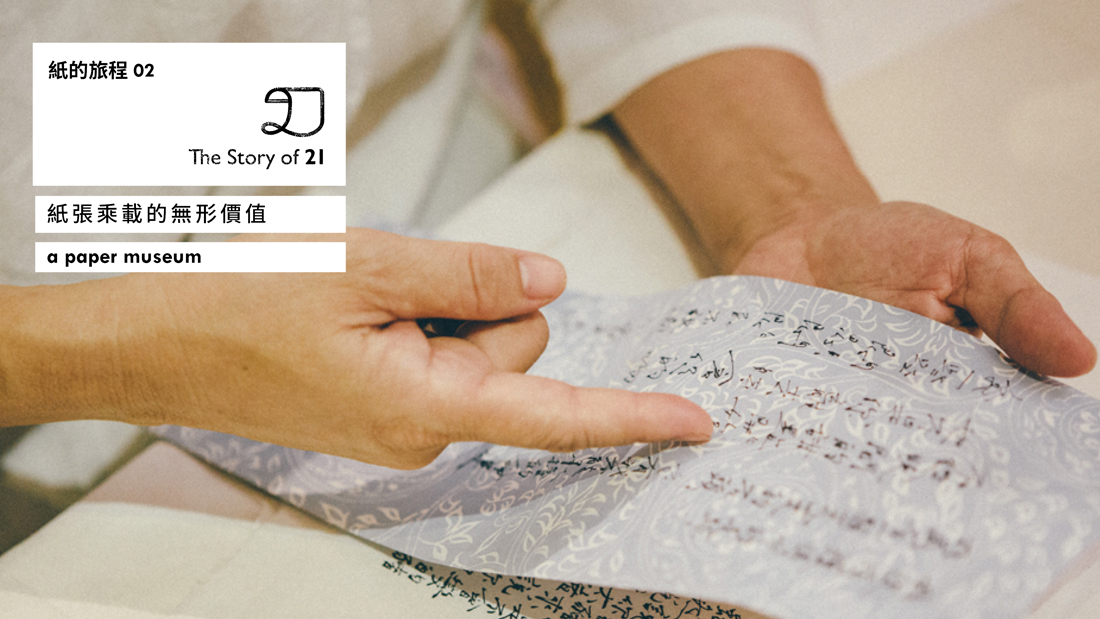
Light as a feather, yet heavy with the weight it carries,
it takes on words, wraps around objects, pass on feelings, and keep safe memories…
It is as indispensable in and beyond writing in this life of ours.
In commemoration of its 21st anniversary, books.com.tw is teaming up with age-mate Suho Memorial Paper Culture Foundation for an unusual project. The limited paper collection " Fine Writing Papers " (好好寫字帖) features 21 paper types for different writing styles, including 12 special types produced by Taiwan's remaining manual papermaker, Chang Chuen Cotton Paper Mill from Nantou County's Puli Township.
With lifelong devotion to the sustainable development of paper culture and papermaking industry, Chen Su-ho, the founder of Chang Chuen Cotton Paper Mill, died in a plane crash in 1990. His youngest daughter Chen Ruey-huey picked up where he left off and started the foundation, with the eponymous memorial museum inaugurated in 1995 to promote the knowledge and innovative applications of paper. Via concerted efforts with family businesses Chang Chuen Cotton Paper Mill, CNJ Paper, and Chung Rhy Specialty Paper Mfg. Co. Ltd.—which focus on preserving traditional handmade paper, introducing paper from overseas, and developing industrial-use paper, respectively—the foundation is working to uphold Taiwan's papermaking tradition and its unique paper culture.
//
Interview & text—Chen Shu-fen Still Photographer—Lee Ying-hsia English Translation—Chen Yi-hsuan
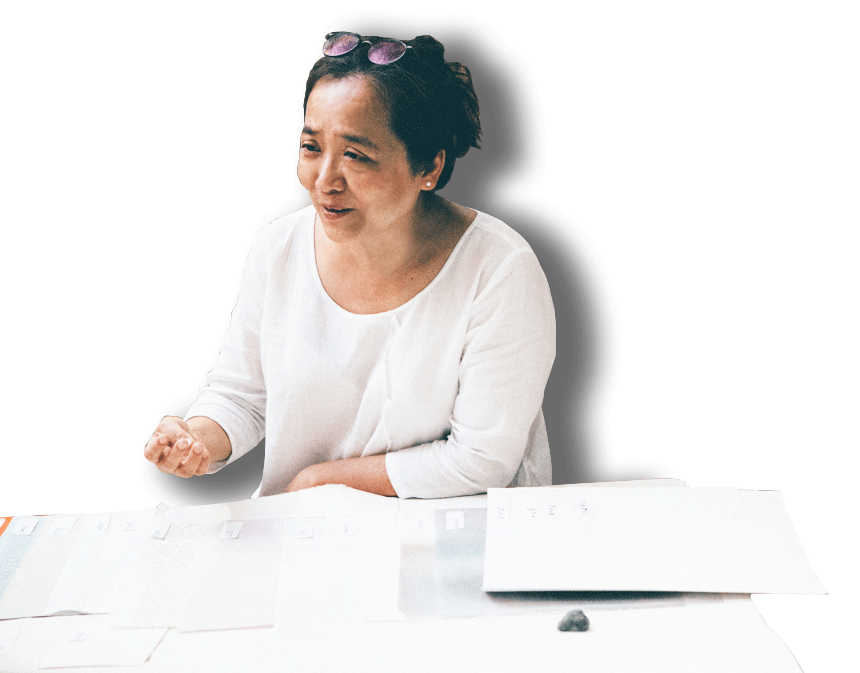 樹火紀念紙文化基金會執行長陳瑞惠
樹火紀念紙文化基金會執行長陳瑞惠
“Find a piece of paper and start a conversation with yourself.”
─Chen Ruey-huey, CEO of Suho Memorial Paper Culture Foundation
Speaking of why Puli in central Taiwan's Nantou County has become the local hub of handmade paper production, Chen Ruey-huey, chief executive officer of Suho Memorial Paper Culture Foundation, gave a very simple answer: water.
"Puli boasts arguably the highest-quality water in Taiwan, containing minimum impurities such as iron in it, which makes it ideal for the purpose of papermaking." Water is crucial to the quality of paper, as water with less iron in it can reduce the tendency of paper to turn yellow. Combined with stable preserving conditions, such as a dry environment and no direct sunlight, it can prolong the lifespan of handmade paper to over 1,000 years. Moreover, the paper will age, like vintage tea, to have a smooth and mellow feel to it.
Spread out on a large worktop were four sets of different paper combinations, comprising 21 paper types hailing from Finland, Japan, the U.K. and Taiwan, selected by Chen for the "Fine Writing Papers" project. Locally developed and manufactured products make up a majority of the selection. Handmade or machine-produced, the diverse styles go to show the rich variety of paper available.
While showcasing the 60-year legacy of Chen's family business Chang Chuen Cotton Paper Mill in handmade paper development, this project reflects the transformation of paper uses from art and culture to technology over time.
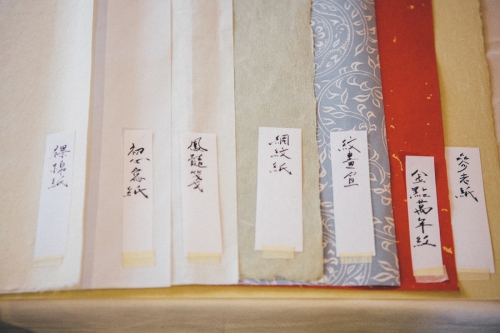
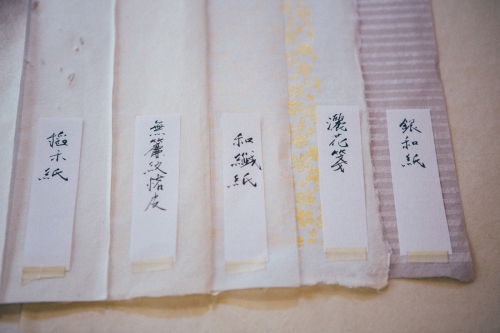
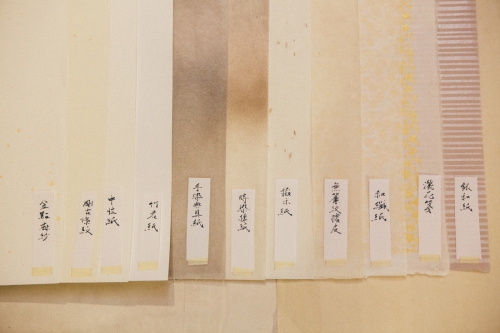
Chen never settles for the thought that paper is nothing but paper. In as early as 30 years ago, she started thinking: what can paper be used for in addition to writing? "I was never a fan of anything staying the same. In order to expand the possibilities of paper, we started using paper in floral arrangements and torn paper art, which were met with quite enthusiastic response." Aside from pioneering the use of paper for decoration, Chen has frequented Japan where there is a robust paper culture for inspiration. She has brought back innovative ways of using paper from Japan, hoping to revolutionize people's limited imagination of the medium.
The project this time is a never-before challenge for Chen, too. "Although the purpose is to produce a volume suitable for pen calligraphy, I don't think the only criterion is whether the paper is good for writing." When people write on paper, they do not expect to express only meanings but a certain degree of affection and beauty as well. "Paper can relay a diverse range of thoughts and feelings that can be experimented and experienced by the writer and the reader alike." Having worked with paper for most of her life, Chen has always wanted to share this realization with other people.
The Conqueror Laid Calligraphy Paper (Fine Writing Papers-C④) included in the project is a case in point. Beloved of the British aristocracy, the historic paper has been a favorite for business communications and official documents around the world due to its distinctive high quality and premium brand image. Or the Naked mián paper (Fine Writing Papers-ⅱ), plain and rough, apparently the exact opposite of Conqueror. Making the paper is a complicated process; its lack of refinement keeps intact the primitive beauty of handmade paper and the manual work of craftsmen.
When it comes to paper that epitomizes the IT age, it has to be the Hé xiãn Paper (translucent thin fiber paper, Fine Writing Papers-D④). Using partially synthetic fibers, this paper not only sports greater tensile strength but is silk-like and great for dyeing. What's more, its thin and tenacious quality makes it the go-to material used by smartphone manufacturers to cover and protect their products. It is a traditional product born out of high-tech demand. Other paper types range from Netted Paper (fine writing papers-D②) that does not fade easily to Sâ huã jiãn Paper (paper with golden floral printed, fine writing papers-C③), Grain Paper (fine writing papers-A③), and so on. By listing the diversity of paper styles available in Taiwan, one comes to grasp the breadth and depth of the country's superb papermaking technology.
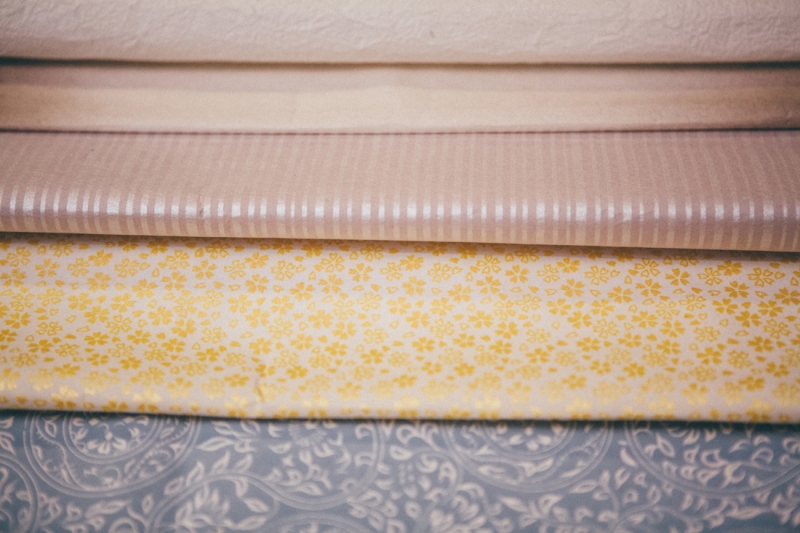
"It almost feels like we can do without paper at the present age. But in reality, we can never afford to do without it." People have been served well by paper at all times but always ignored its importance and never even treated it properly. "We have not talked about paper like we should for such a long time." It is so commonplace that it runs the risk of being forgotten.
A paper can take on scribbles, emotion-laden urges, or wisdom passed down generations. Through the mere medium of paper, everything around paper can be addressed and transpire. "A common attribute shared by the 21 paper types is that it can be used for writing, the only difference being whether it is good to write on." Chen said with a sly smile, "Sure, you will want paper good to write on. However, you will also be extra focused and attentive when you write on difficult paper." For instance, it is easy to dismiss Plain chû pí Paper (non-ribbed kozo paper, fine writing papers-A④) as a "difficult type" for fountain pen nibs tend to get tangled with its long fibers. "Still, if you can slow down and focus your mind on forming each curve and stroke, you will find peace with your heart too." It is the same with other decorative papers. They may not be that suitable for writing, but writing on this kind of paper forces you to put your heart into it.
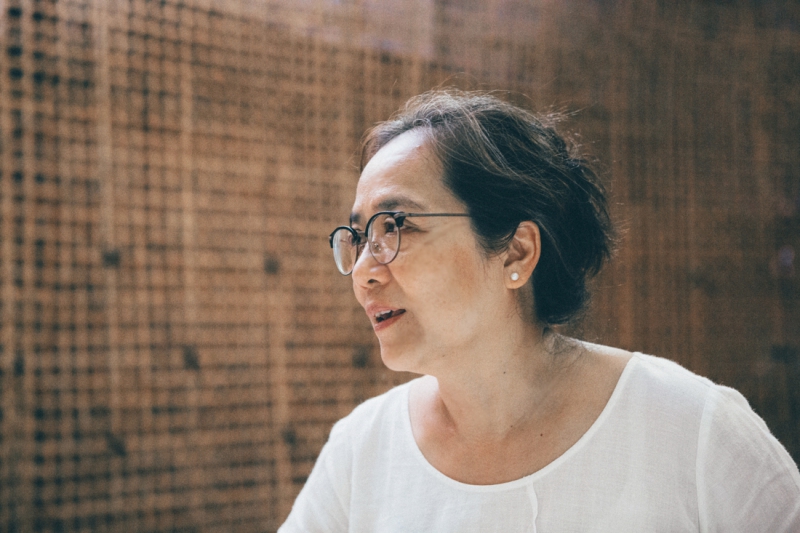
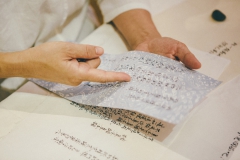

Paper comes from trees and water. Trees have to weather the vicissitudes of nature to grow tall, and then they will be made into pulp and the wood fibers interlaced into paper. The whole process is like a circle of life under the shade of the tree, with nature's rich philosophy hidden inside a simple sheet.
"Don't save on the handmade paper or think it's a pity to use it. Its existence will be meaningless if you don't use it." Use the paper well and write every word properly, Chen said, so as to convey one's feelings carefully.
"Find a piece of paper and start a conversation with yourself." That is the best possible thing, Chen said.
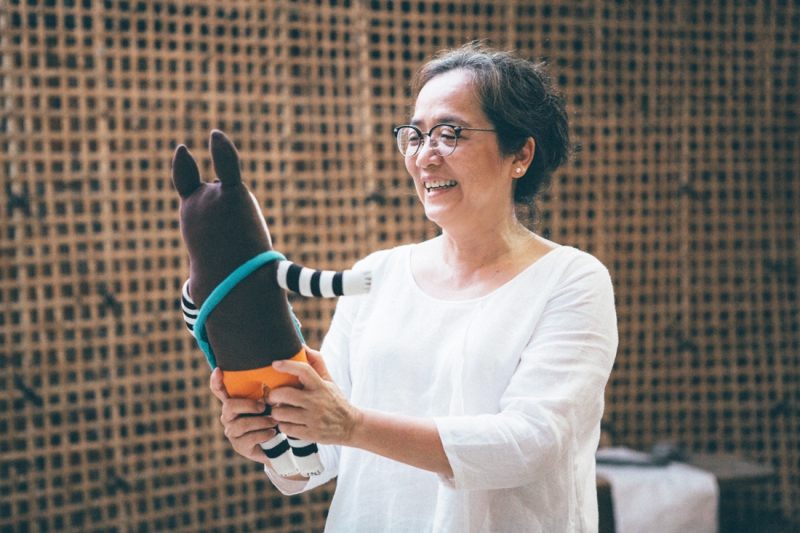
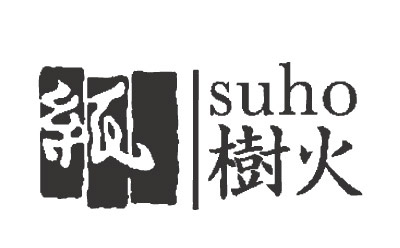
Taipei
Suho Memorial Paper Museum
Tel:02-25075535
09:30~16:30
Click to buy "Fine Writing Papers"
The best way to keep the tradition of handmade paper alive is to keep using it.
Fine Writing Papers+Journey of Paper
(special issue by okapi.books.com.tw)
" Fine Writing Papers" is compiled by Suho Memorial Paper Culture Foundation, comprising papers made from bamboo and wood pulp, pineapple and synthetic fibers, kozo (mulberry) bark and grains. Manufacturing technologies range from manual vatting to machine production, with origins from Finland, Japan, the U.K., and Taiwan. Also included in this pack are three vintage, out-of-circulation local handmade papers from more than 30 years ago.
Find the paper just for you, making it a need that lasts a lifetime.



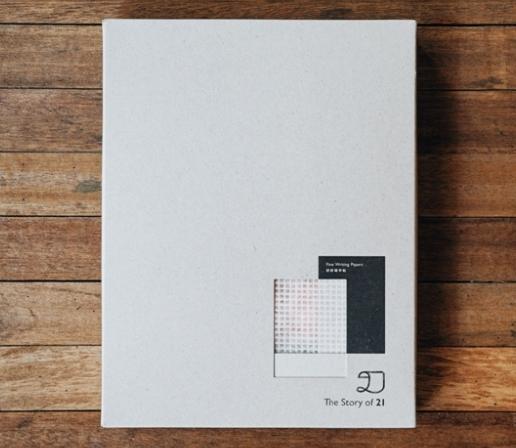

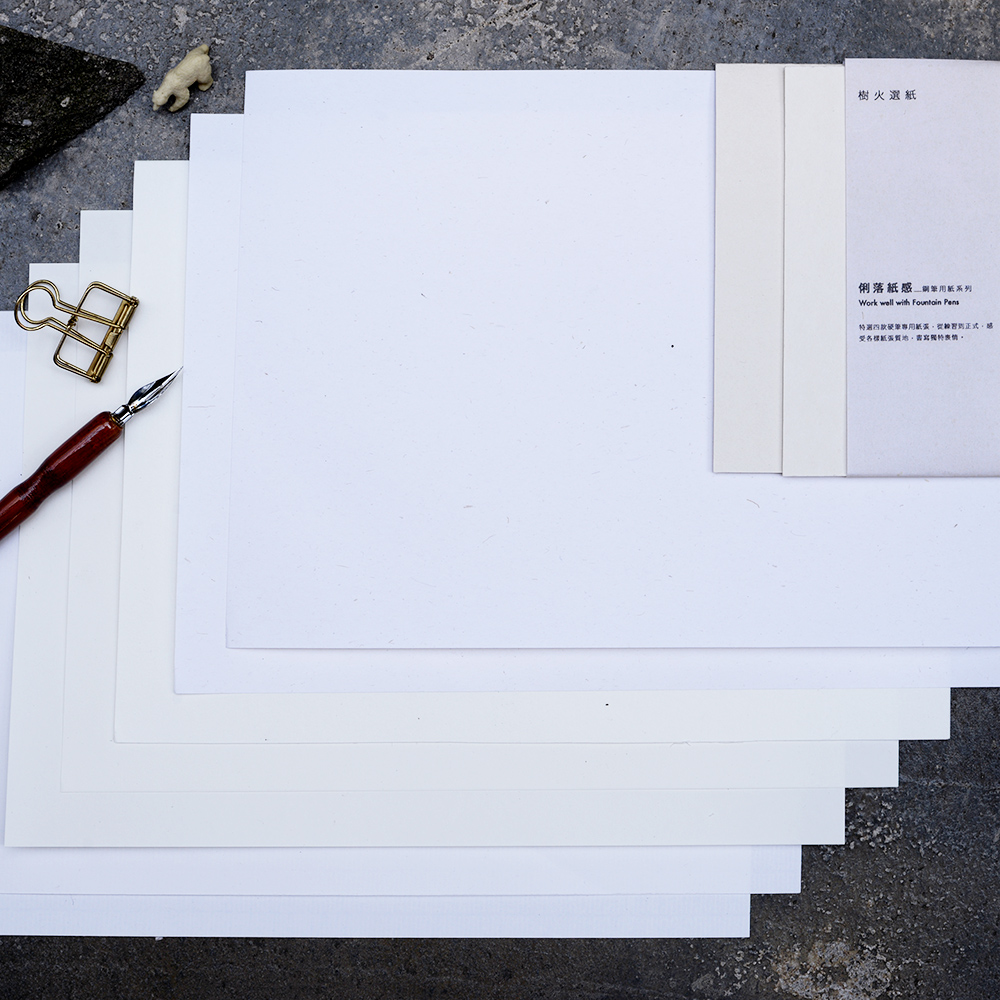
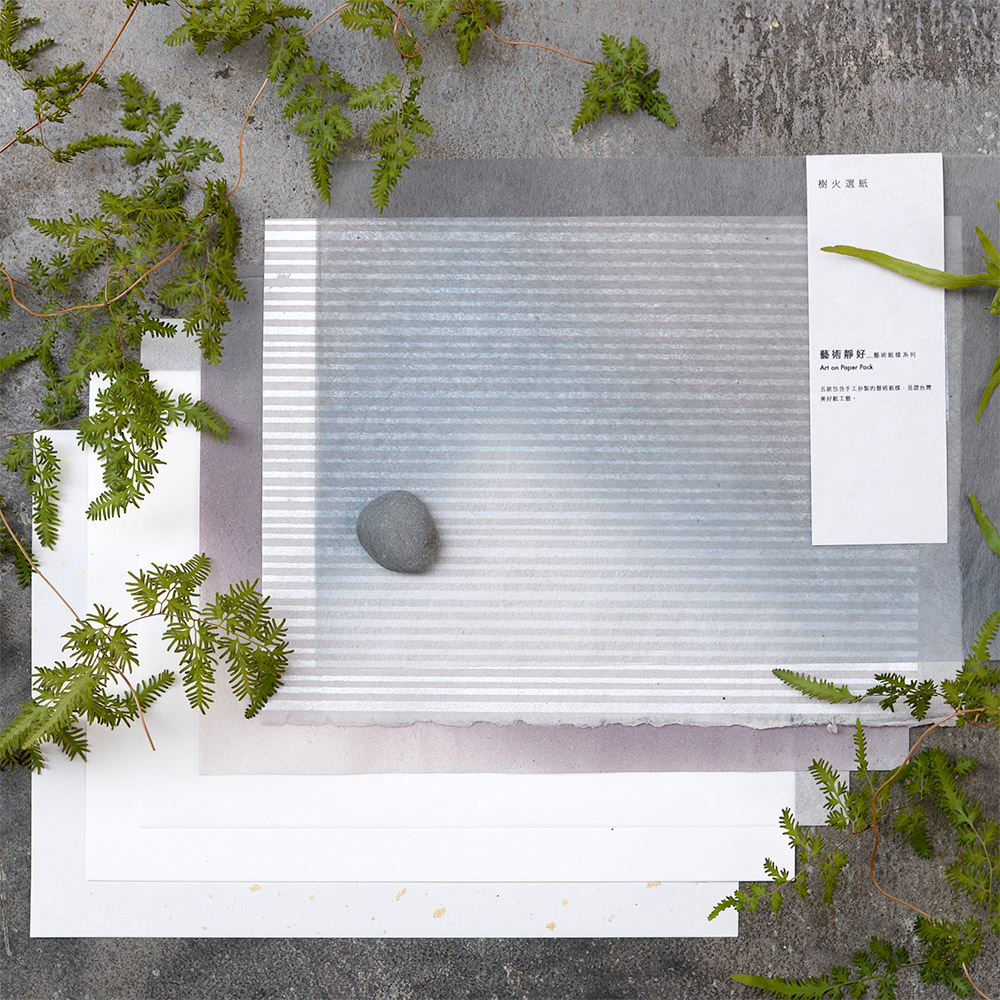
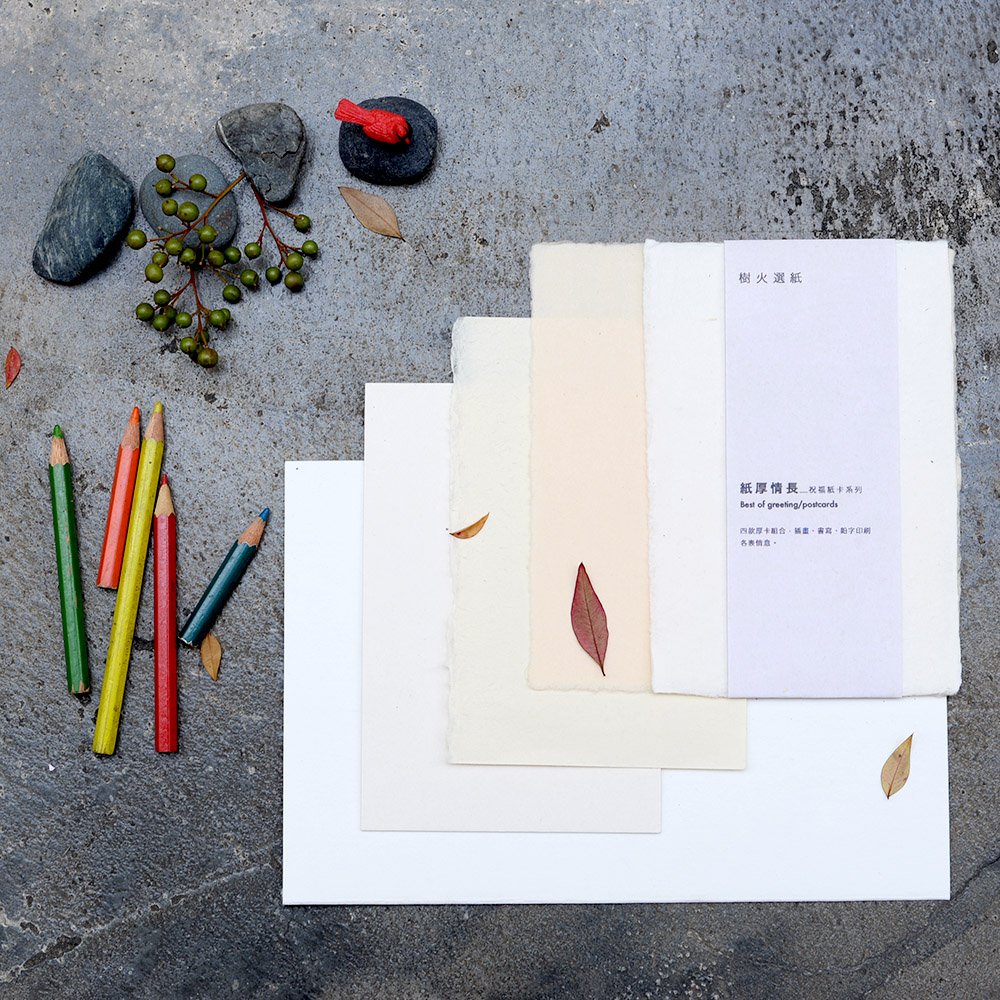


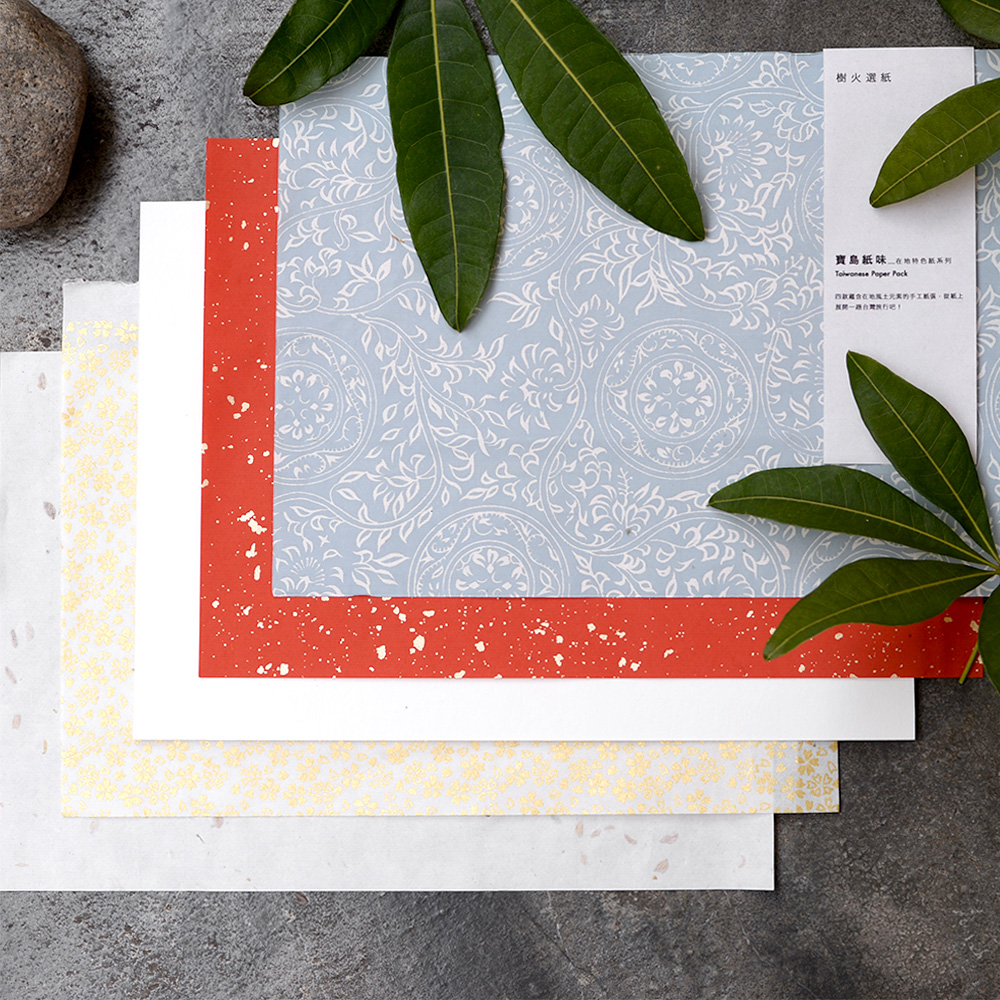
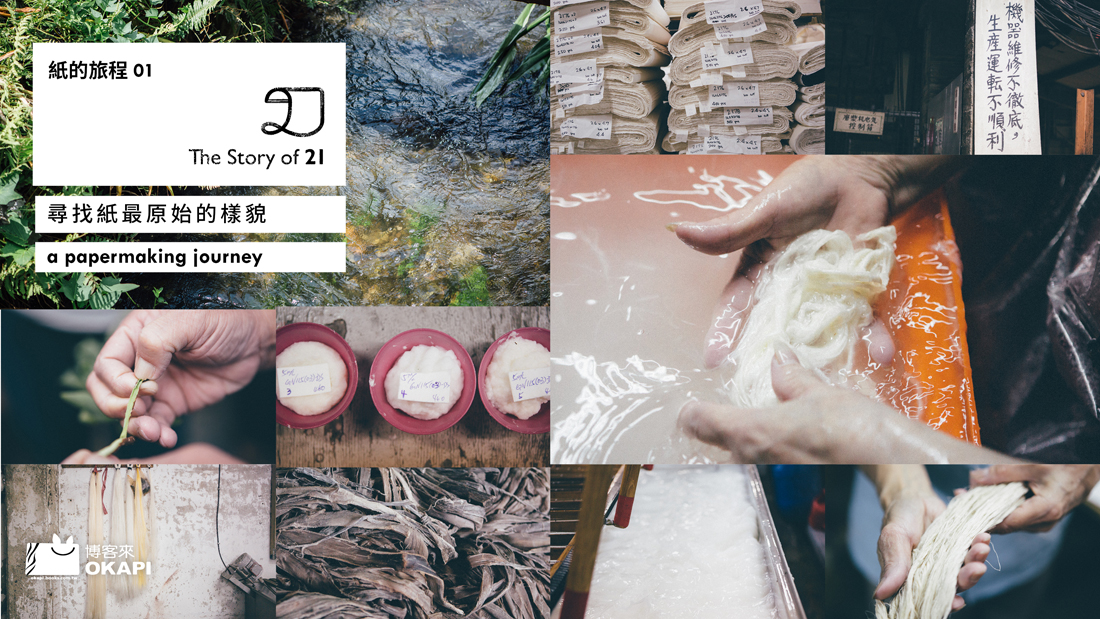



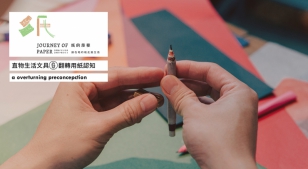


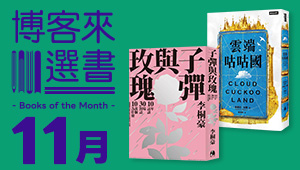

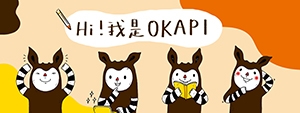

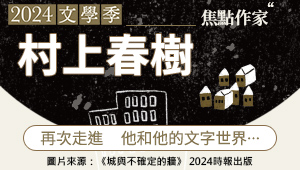
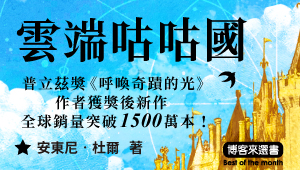
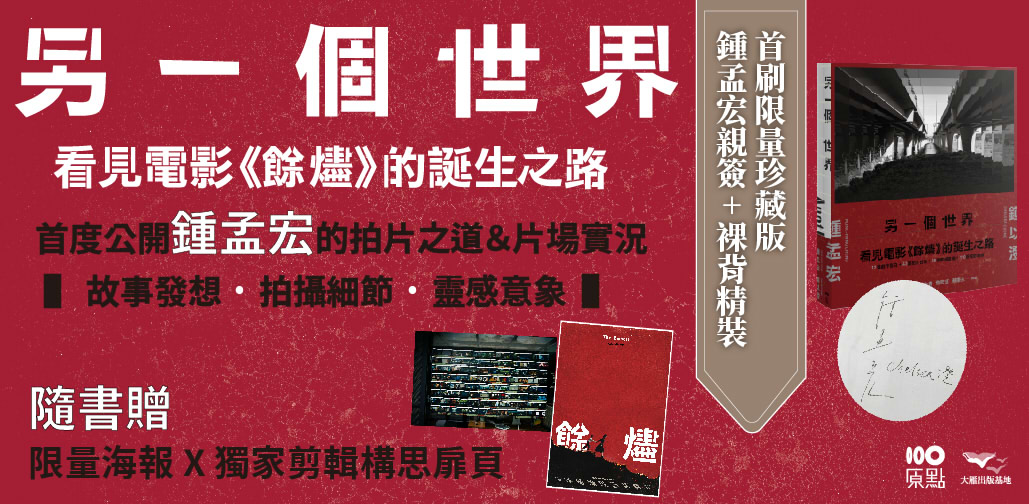
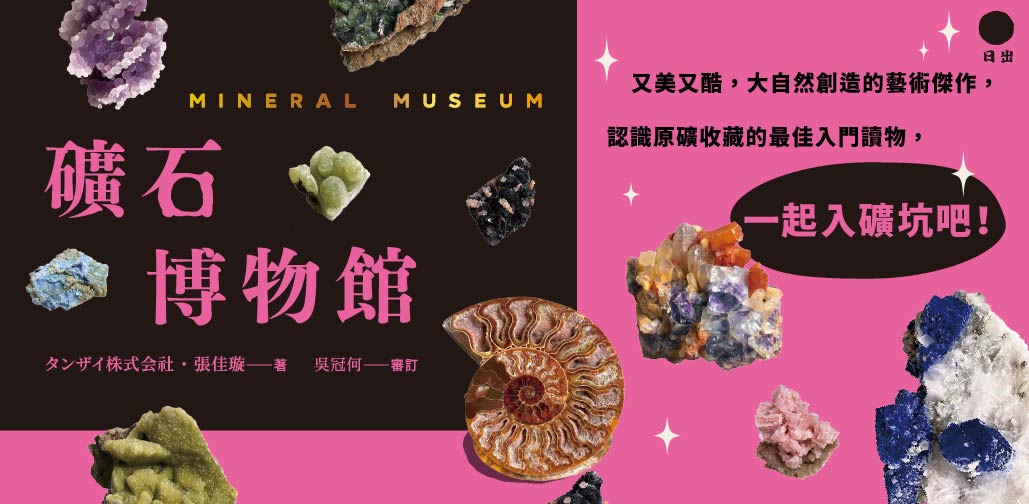
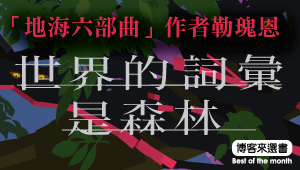
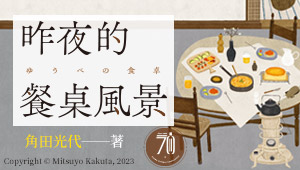
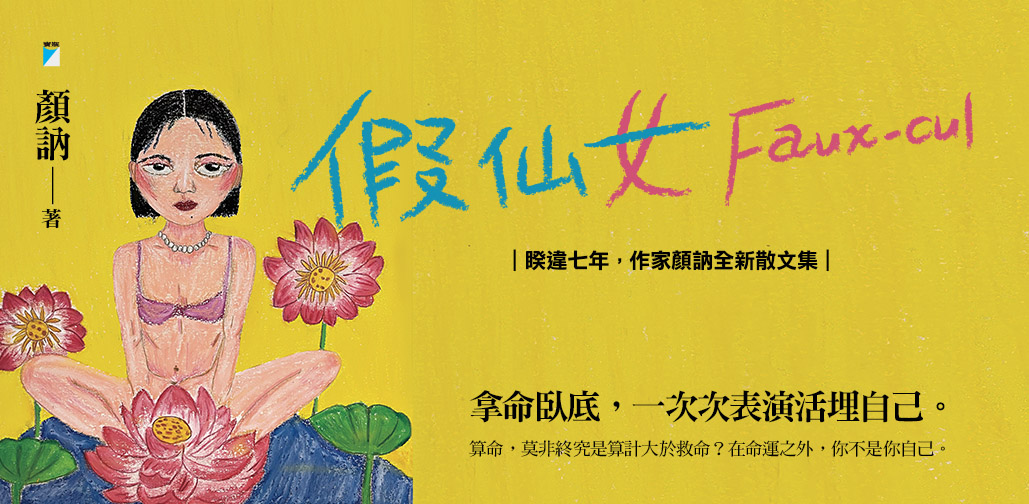
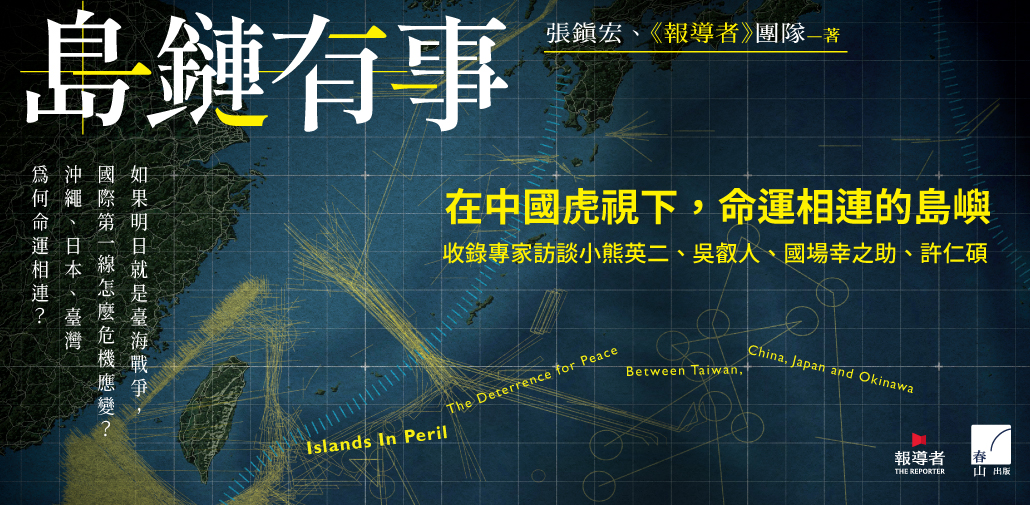
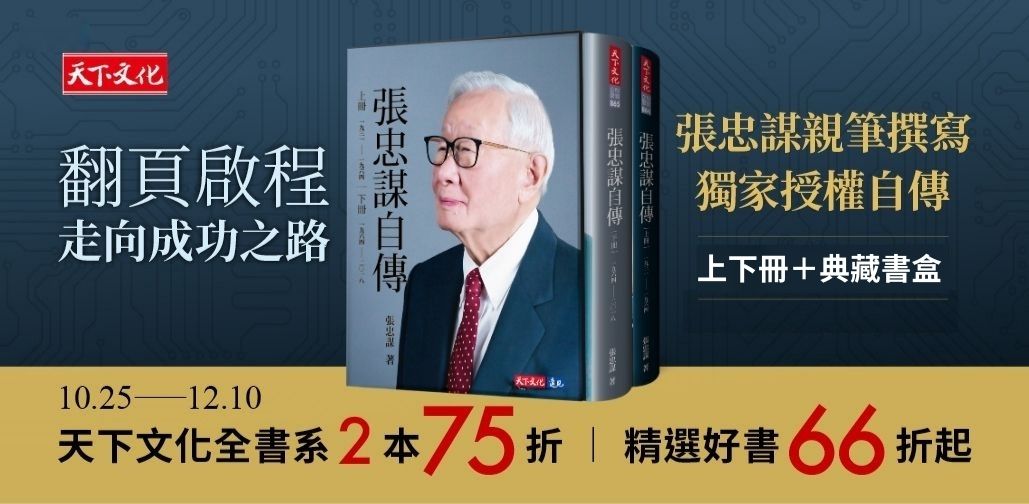

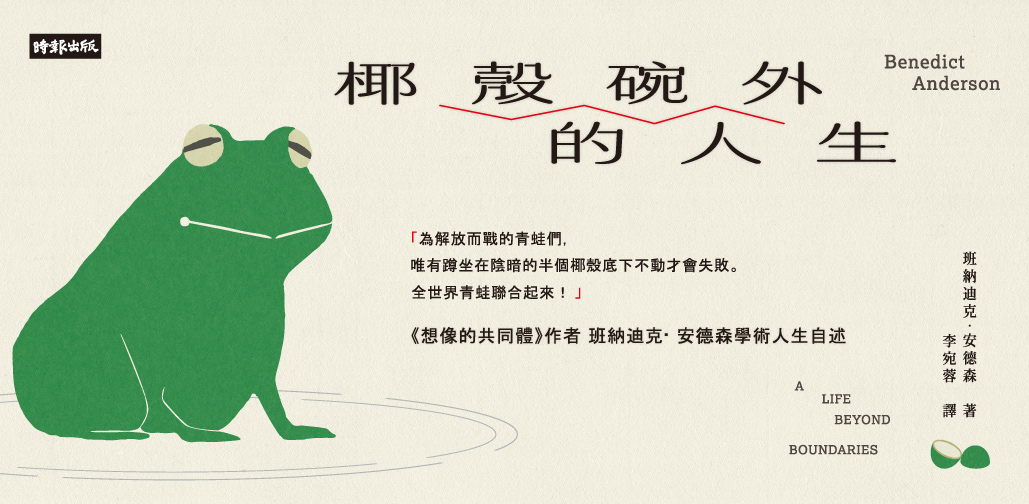
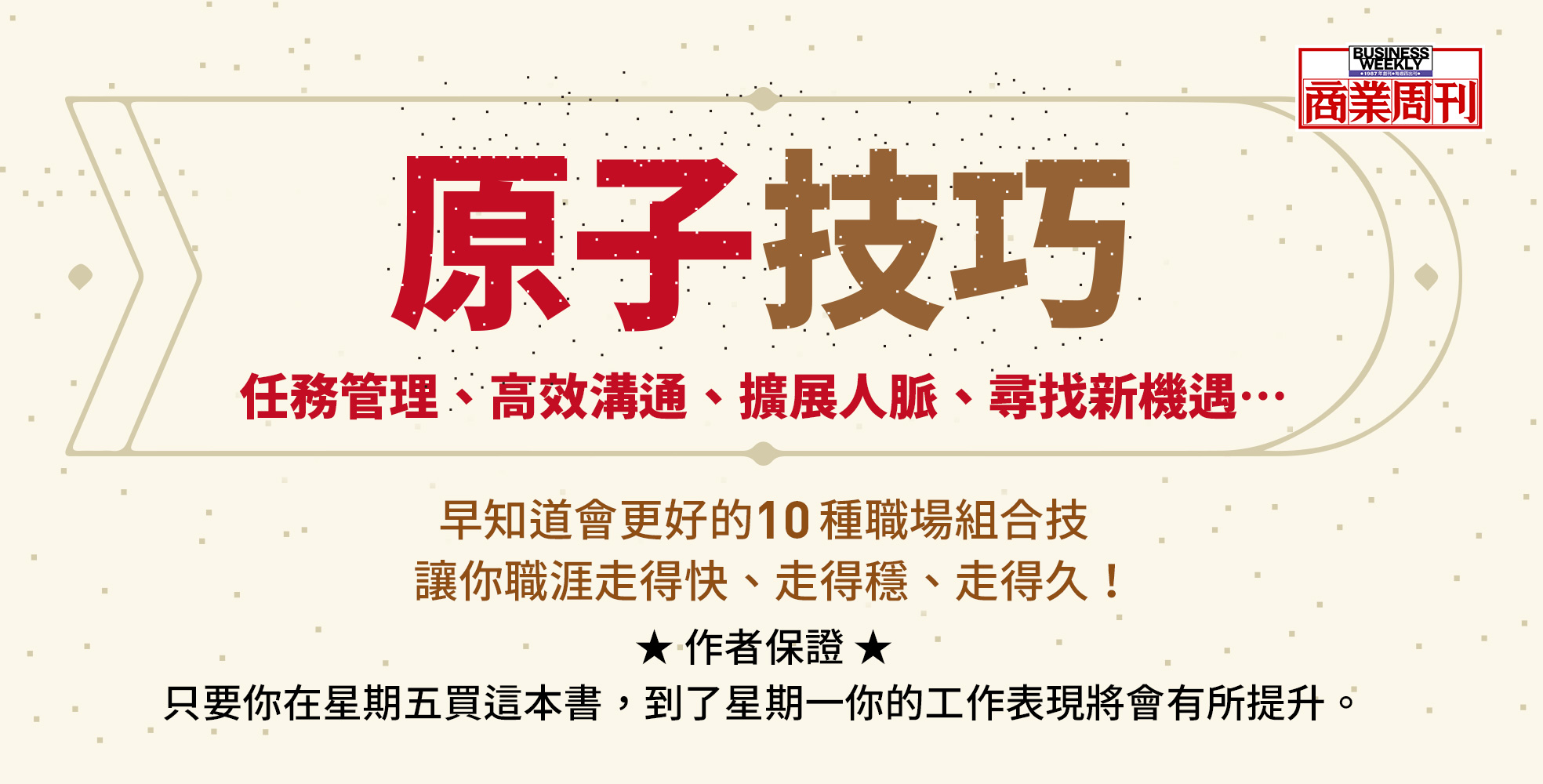
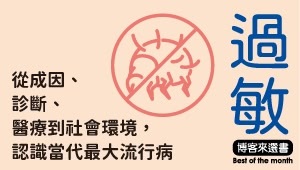
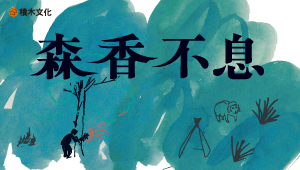
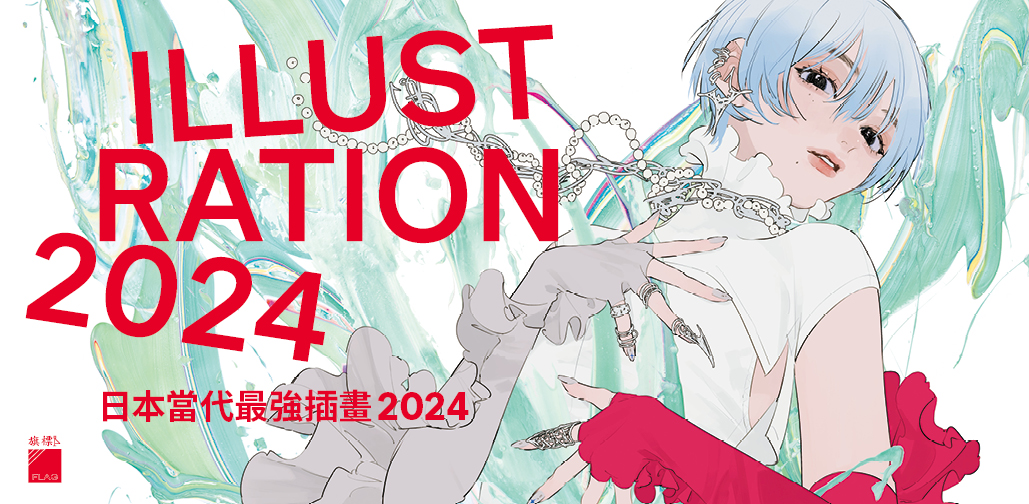
回文章列表